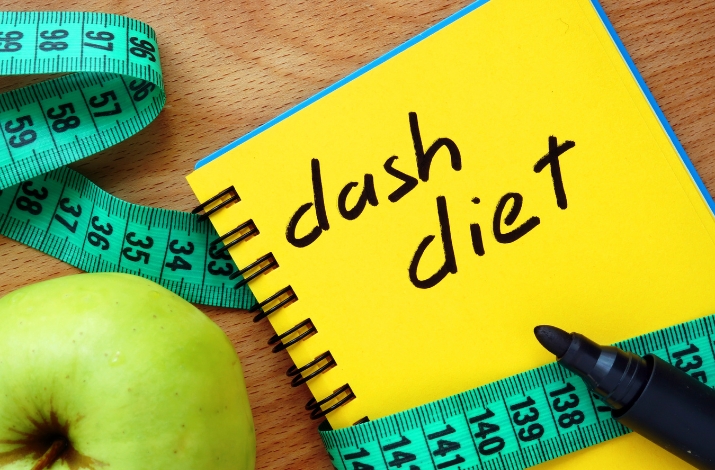DASH Diet or Low-Carb Diet for Heart Health?

Within the realm of nutrition, there is arguably no diet more revered and adored than the DASH diet. Designed to lower blood pressure, The Dietary Approaches to Stop Hypertension (DASH) has been lauded as the most effective way to reduce the risk of heart disease through its ability to lower blood pressure. And every conventionally-trained clinician has heard of it, which means every patient with a hint of hypertension has heard of it, as well. But is it the best dietary approach for lowering blood pressure and presumably reducing heart disease risk?
Before going too far, let’s explore the core of the DASH diet. This dietary strategy consists of a few fundamental principles – rich in fruits and vegetables, high in whole grains, low in any sources of fat (especially saturated fat), and low in salt. Regardless of whether you’ve heard of the DASH diet before now, these ideas undoubtedly sound familiar. And they work – this dietary plan has indeed been shown to lower blood pressure. Given how enthusiastically the DASH diet is recommended, we would rationally conclude that no other dietary approach works as well, right? Wrong.
Very recently, an excellently-controlled study was published that compared the respected DASH diet with the oft-maligned low-carbohydrate diet [1]. In many ways, a low-carbohydrate diet is the DASH diet’s opposite, suggesting reduced fruits, vegetables, and grains, while encouraging fatty sources of food, with no restrictions on (or regard for) salt. With such a contrasting approach, you’d think (and indeed many are taught) that a low-carbohydrate diet would worsen blood pressure. This study was designed to figure that out.
Ninety-four adults with “triple comorbidity”, namely people with hypertension, insulin resistance, and overweight, were enrolled in the study, and assigned to one of two diets for four months – the DASH diet or a low-carbohydrate diet (20-35 grams of carbohydrate daily). During the four months, subjects had weekly online sessions to provide guidance and direction to help maintain adherence to the diet. At the end of the four months, the results were obvious – one is far better than the other.
Every single clinical marker was significantly better in the subjects on a low-carbohydrate diet compared with those on the DASH diet. The low-carb group lost almost twice as much weight (-19.14 lb vs 10.34 lb). They also had an over two-fold reduction in HbA1c (a marker of diabetes), dropping by 0.35% in the low-carb group compared with only 0.14% in the DASH diet group. And finally, blood pressure – once again, it wasn’t close. While the DASH group had an admirable reduction in systolic blood pressure of 5.18 mm Hg, the low-carb group enjoyed a reduction of almost twice that, dropping by 9.77 mm Hg!
These results further contribute to the mounting evidence that, on average, a low-carbohydrate diet results in far better reductions in blood pressure than low-fat diets [2]. What too many fail to realize is that any approach to lower blood pressure that ignores insulin, will have at best a modest effect on blood pressure. Among its many effects, insulin has a powerful influence on several factors related to blood pressure, such as the size (diameter) of blood vessels, how hard the heart beats, and even what the kidneys do with extra salt in the body.
If you’re one of the millions of people worldwide who struggle with high blood pressure, you certainly want to focus on lowering it, and you want to focus on the best strategies. As much as low-fat, low-salt approaches are lauded, you now know there’s a better way: control carbohydrates to lower insulin and blood pressure will follow.
References
- https://www.annfammed.org/content/21/3/256
- https://onlinelibrary.wiley.com/doi/10.1111/j.1467-789X.2012.01021.x
This article is for informational and educational purposes only. It is not, nor is it intended to be substitute for professional medical advice, diagnosis, or treatment and should never be relied upon for specific medical advice.




















